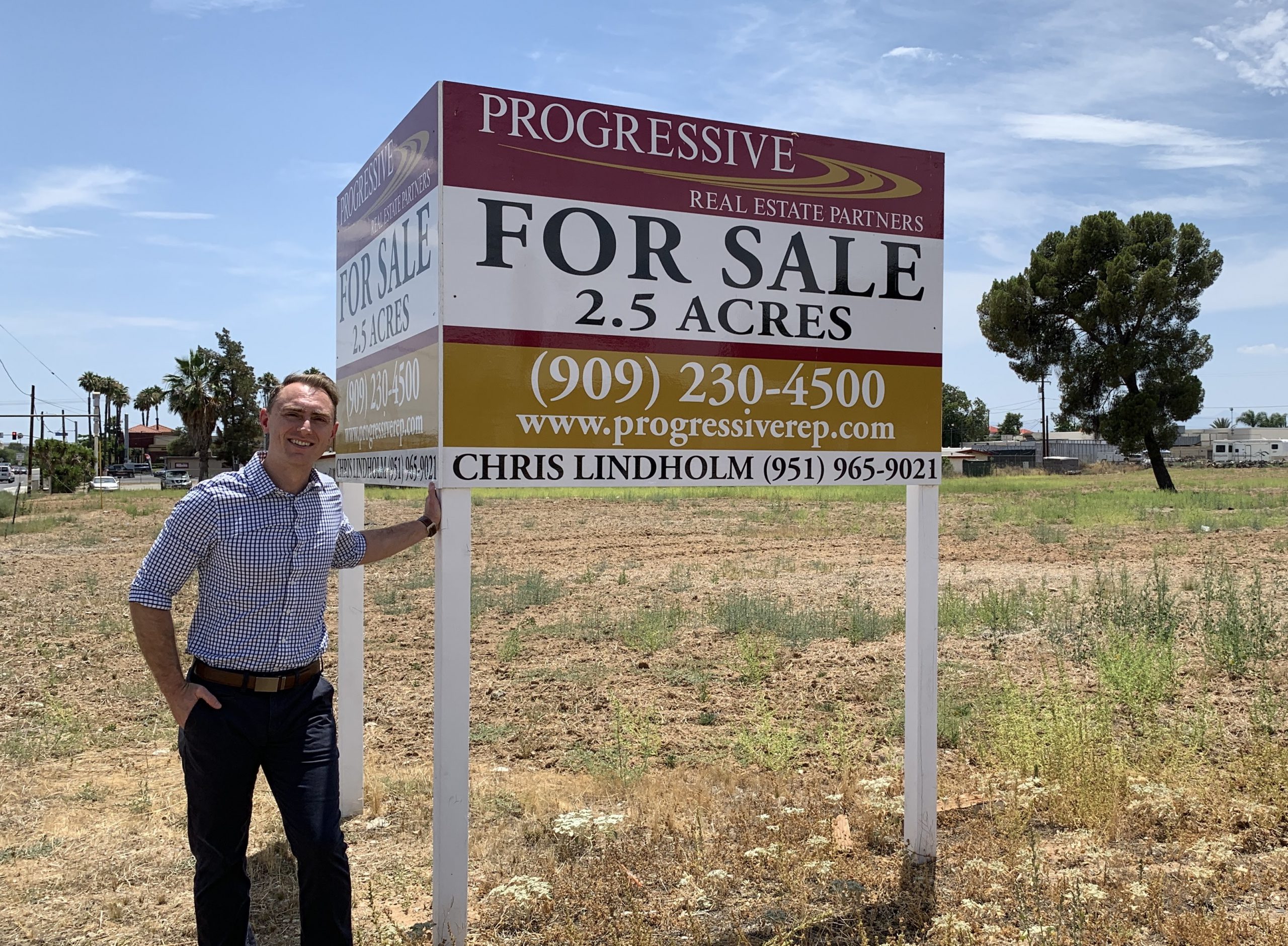
Based upon the vast amount of land throughout SoCal’s Inland Empire, we have put substantial resources into developing our commercial land brokerage business. According to Costar, there are presently 2,038 commercially zoned parcels that are actively on the market in the Inland Empire. In the 12 months ending June 30, 2019, only 272 have sold.
Chris Lindholm, an experienced land broker, who spent 15 years entitling projects as an architect is one of our firm’s leaders in growing this product segment of our business. Here are the major factors he considers when valuing a land parcel:
Zoning: What does the city code allow you to build on the site? We recently evaluated a site that had the flexibility for retail, multi-family residential, or business park industrial (this was a really unique site). The value of this site would have been much lower if only commercial was allowed, but because we understood its zoning, we were able to recognize it had a much higher value than we originally speculated.
Speculative Value vs. Entitled Value: If a seller is asking someone to buy their property with a short due diligence period and a quick closing, then the value could be dramatically lower than if the seller is allowing a buyer/developer/user to go through what could be a long and costly entitlement process. This entitlement process is intended to ensure that what the buyer ultimately wants to do with the land is allowed and approved, including site plans, building elevations, solving environmental issues, and approval of the intended use for the property.
Off-Site Costs: Will the developer of the land be responsible for widening the roads? Are there utility poles that will need to be put underground? Will a traffic signal need to be installed or relocated? Are utilities adjacent to the site or will they need to be brought to the site? All of these items reduce the value of a property.
Trade Area: Investigating the overall trade area helps us figure out what use(s) might yield the highest and best value for the site. Understanding what is or is not needed in the trade area relative to what the site is zoned helps establish potential demand. Also, determining whether the area is growing and if that growth is towards the site or away from the site is an important consideration. Understanding the site relative to neighboring uses helps determine the viability of certain uses. For example, car washes are paying amongst the highest value for property today, but if the subject site is next to single family residential, it is likely that a car wash will not be able to obtain a conditional use permit because the neighbors will fight the use. As a result, the site would not be worth as much because of the inability to sell it to the user that could pay the most.
Size: Corner sites under 1 acre intended for retail development command the highest retail value on a per square foot basis. While that same site being 10 or 15 acres is priced at a much lower value on a per square foot basis because the rents that anchor tenants can pay generally do not support a high land value in today’s market. The opposite may be true if the site was intended for residential or industrial use. A larger parcel could be much more valuable on a per square foot basis because of the ability to spread costs across a larger project. Also, due to economies of scale, the ability to build 300 apartments versus 150 may make the larger property more desirable and therefore more valuable.
Topography: Is the site above grade or below grade? Is the land sloped? Google Earth is not that good at seeing topography. Topography could affect visibility which could affect value. Or it could affect the amount of grading that may be required to develop the site. Importing or exporting dirt can be very expensive.
Environmental Concerns: Endangered species, drainage, previous uses, and soil conditions are just some of the factors that could affect value and the timing of a transaction.
Municipal Fees: School fees, transportation mitigation fees, public works fees, permitting fees, water & sewer hook-up fees, health department fees, and building fees vary significantly from municipality to municipality which could have a major impact on land values.
As you can see pricing your land accurately and then marketing it correctly with a professional land broker is critical to the success of selling your property. If you own commercial land and want to discuss the possible sale of your property, please call, email or text Chris Lindholm at 951-965-9021 or chris@progressiverep.com.